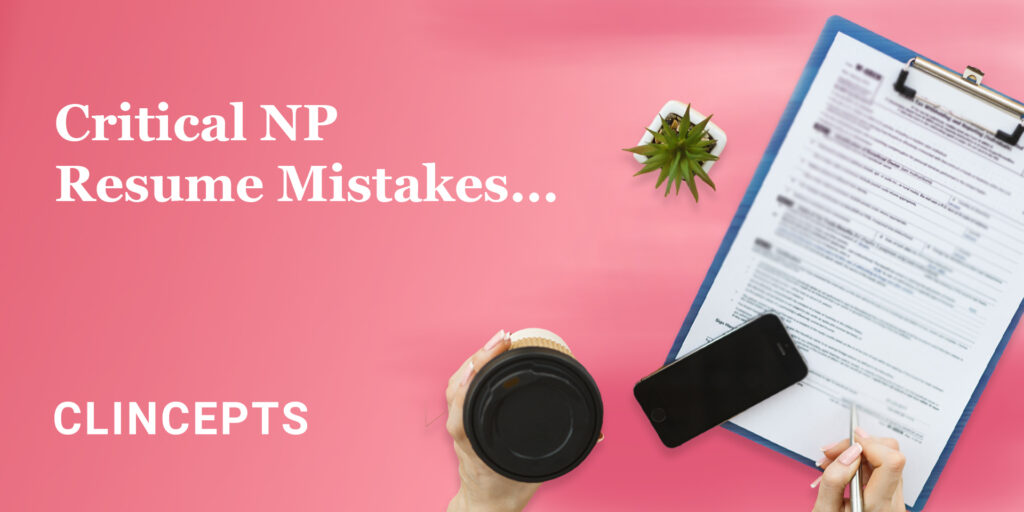Undeniably, a critical aspect of OJT (on the job training) is the J-O-B. You need a job to start the transition from nurse to provider. Backtrack with me for a moment. To be a nurse practitioner, of course you need to be employed by someone whether self-employed or otherwise. And to get a job, you need to nail the interview. And to be considered for the interview, you must submit a killer resume. By that I mean, your resume needs to sparkle and shine.
Let’s review the top 3 mistakes and changes to make in your new grad resume to guarantee callbacks and land interviews from prospective employers.
Mistake #3:
Over emphasizing your RN background. I get that our nursing background should play a factor in our resume. But it should be a small component, rather than the main feature of the resume. If you are applying for a specialty position, and had extensive experience as a nurse in that same specialty then your resume should reflect this. However, the big picture is to convey that you would be a good candidate.
Fix: Highlight your clinical rotations and how they relate to the current position. Remember, if you performed or observed a procedure once you have experience. You’re a novice with limited experience but experienced nevertheless. Label your practicum hours as an internship or residency. Include all of your rotations, providing more details to the specialties applicable to the position. If your resume is more than one page, this section needs to be on the front page, preferably towards the top.
Mistake #2:
Having a poor professional summary. Inherently, we describe our best nursing qualities. While they are good, the prospective employer is looking for what value you will deliver as a provider. I made this very mistake when I initially started applying for jobs. I highlighted that I was good with time management and prioritization. As a provider however, those qualities turn into expectations given your advanced role.
Fix: Adapt your summary to include personal strengths, clinical experience, and proficiencies that will add value. If you’re having a hard time generating a mental list of your strengths, take an online quiz or ask a close friend, colleague or family member what you’re good at.
Mistake #1:
(drumroll please!!) By far the most common mistake in resume writing is using the same resume for every job application. Your resume becomes mediocre at best with missed opportunities from the recruiter to contact you. Remember, your goal with the resume is to convey your value as a potential candidate.
Fix: Adapt your resume to include keywords from the job requisition. This is actually a very common HR tactic. Many times your resume is filtered and screened prior to even making it to the hiring manager. If your resume mirrors an organization’s needs, you’re getting a callback!


